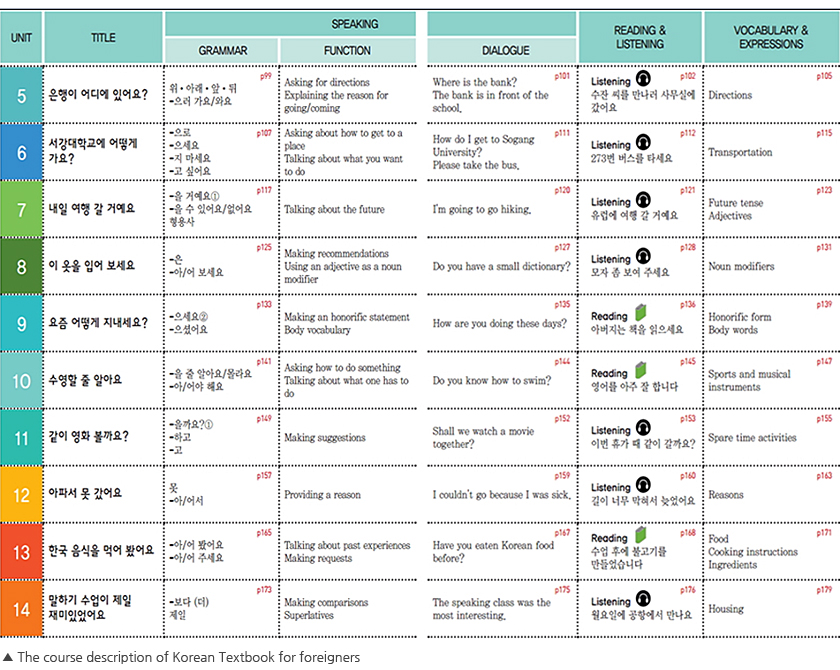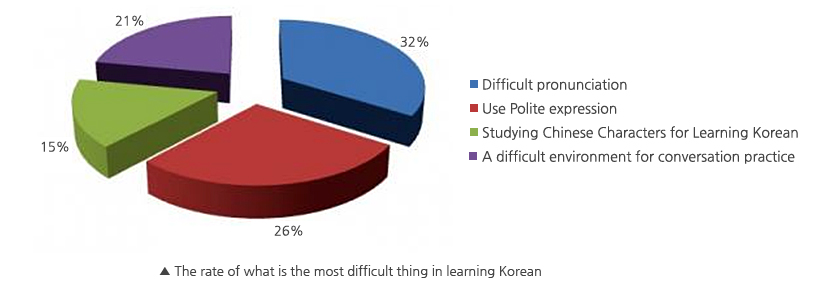Correspondent
Image of Korea from the International Point of View
I’m an undergraduate- student studying Business marketing in the University of Wisconsin in U.S. Specifically, Wisconsin is popular as not only having a cold weather but also consisting of different races, which means that there are a lot of foreigners such as me. The more I’ve been hanging out with my friends here, the more I’ve learn a lot more about how foreigners are likely to think of Korea.
What made me more surprised is that the text books were published by Sogang University. It made me pleased, but the textbook was not good as much as I expected. It just explains grammatical structure in sentences of Hangeul and what the sentence you made means. For instance, there’s sentence: “아버지는 책을 읽는걸 좋아하십니다.” Below this sentence, the textbook explains well grammar structure between Korean and English, by explaining about what it means. It describes that ‘아버지는’ is subject, ‘책을 읽는 것을’ is objective, ‘좋아하십니다’ is verb.
1. Connect language and culture, not just teach grammar structure.
Even though our university has Korean classes that let students know Korean language, there are only 5 classes that students are able to learn about Korea. Furthermore, textbooks for Korean classes include not Korean culture, but just how to read and write Hangeul. I think it’s not enough to inform the Real Korea to foreigners, just learning Hangeul. However, publisher should be careful to connect language with culture. That’s because language which has been used and developed by people contains their own culture and custom, but most of textbooks don’t deal with the connection between Korean culture and language.What made me more surprised is that the text books were published by Sogang University. It made me pleased, but the textbook was not good as much as I expected. It just explains grammatical structure in sentences of Hangeul and what the sentence you made means. For instance, there’s sentence: “아버지는 책을 읽는걸 좋아하십니다.” Below this sentence, the textbook explains well grammar structure between Korean and English, by explaining about what it means. It describes that ‘아버지는’ is subject, ‘책을 읽는 것을’ is objective, ‘좋아하십니다’ is verb.

Also, it explains that what factor should be first in the sentence-the subject should be first. This sentence is grammatically correct, but it sounds a little bit weird while talking with friends. Considering Korean culture, we don’t use ‘-합니다’ which is kind of term of respect. The term of 'honorific' shows the respect to elder people and it includes our culture. According to Masterkorean (www.masterkorean.com) and Mastertopik (www.mastertopik.com), the online education organization for foreigners, they said that 26 percent of foreigners have difficulty in learning Korean about term of respect (‘honorific’).

The concept of 'honorific' might be so new and uncommon for foreigners that they would be confused about when they use 'honorific' or not. Therefore, I suggest that textbooks explain two cases. First, they describe conversation with friends, and then explains conversation with elder people. The explanation about the difference between formal expression and informal expression can help them to distinguish when they need to use 'honorific'. If the textbook explains it, it would be work effectively to make people understand Korean culture in language which shows that Koreans are likely to consider respect to elder people important.
As I experienced, foreigners studying Korean might have difficulty to understand situations or behaviors that have different meaning. Therefore, I think it’s helpful for foreigners to know the differences of behavior based on culture, if universities or schools make ‘Conversation Partner Program.’ This program is to get application from two parties, both native speakers who are Korean and students who study Korean. And then, they will meet at least once a week, and learn Korean and culture. Through this program, foreigners are able to easily figure out what Korean actually do or speak properly in specific situation by hanging out with Korean.
Especially, a number of Americans wonder that the relationship with Japan. Most textbooks or scholarly journals describe that Japan help Korea to modernize and develop industry and quality of life in 1900s, so many foreigners have known it’s true. However, not a single one of these aspects was already invented by the Japanese, but had only recently been adopted into Japan itself. Also, in particular, schools or universities were being established by Western missionaries, and only few influential Koreans were able to study abroad, compared to Japanese who had been freer to study in other countries as well as make their power stronger and stronger during Japanese’ colonialization era. So that we inform history to other people correctly, we need establish our own view of history. Based on the concept of right history, we are able to persuade that there’s another view about the Japanese’s colonial period by holding conferences or festival that inform relationship between Korea and Japan.
It means the book’s covers have nothing attractive to get people to read them. Therefore, I suggest turning book’s cover into being more visually fancy. Suppose that I face the book dealing with the war and economical result from the war between Korean and Japan. The content looks so boring that nobody might want to read it. What a worse, if someone make cover with a statistical graph, it looks harder to read. However, if I change the cover from that to the picture of people suffering from the war, it would be better to make the content simple and realistic, which causes reader to read the books.
In our university, there’s a Taegukgi which is a national flag of Korea, and whenever I’ve seen it, I’ve been feeling that I’m proud of that I’m Korean, while studying in United States. However, many Americans don’t know Taegukgi is the national flag of Korea, which means that they don’t know well about Korea. Every single moment that I walk cross Taegukgi with my friends, I told them this is symbol of Korea, but it’s not enough to let them understand Korea. Therefore, systematic promotions should be made by Korea government, and individuals need to be active informing Korea. With the suggestions that I mentioned above, I want image of Korea from international point of view to be more positive, and foreigners get interested in learning about Korea.
2. Make ‘Conversation Partner Program’ that describes different meaning about action caused by different culture.
To make foreigners understand Korea more, I think we need to add the category that describes what differences there are between Korean culture and other countries’ culture, and contain the information about different usage of words. That’s because we all have different background overall, so we see differently about same action. In my case, my friend and I walked arm in arm down the street, but some of people were staring at us weirdly like we’re doing something wrong. At that time, I didn’t know what made us weird until hearing from American that it’s not common that women walk arm in arm, which looks lesbian. Arm-in arm between women indicates that they are close each other in Korea, but it has different meaning in America.As I experienced, foreigners studying Korean might have difficulty to understand situations or behaviors that have different meaning. Therefore, I think it’s helpful for foreigners to know the differences of behavior based on culture, if universities or schools make ‘Conversation Partner Program.’ This program is to get application from two parties, both native speakers who are Korean and students who study Korean. And then, they will meet at least once a week, and learn Korean and culture. Through this program, foreigners are able to easily figure out what Korean actually do or speak properly in specific situation by hanging out with Korean.
3. Establish our understanding of Korean history.
The other problem is that there’s not enough description about history of Korea. Compared to Korean classes, textbooks for Japanese and Chinese classes deal with history as well as social situation in detail. One day, one of my American friends taking Korean classed said, “Hey, have you ever met north Korean?” I laughed out loud as soon as I heard that, but I recognized she could wonder I had met North Korean or not. That’s because she didn’t know well about the relationship between South Korea and North Korea. Thinking about the reason why my friend asked me whether I met North Korean or not before, I found there’s problem in educating and informing history of Korea in terms of relationship between other nations.Especially, a number of Americans wonder that the relationship with Japan. Most textbooks or scholarly journals describe that Japan help Korea to modernize and develop industry and quality of life in 1900s, so many foreigners have known it’s true. However, not a single one of these aspects was already invented by the Japanese, but had only recently been adopted into Japan itself. Also, in particular, schools or universities were being established by Western missionaries, and only few influential Koreans were able to study abroad, compared to Japanese who had been freer to study in other countries as well as make their power stronger and stronger during Japanese’ colonialization era. So that we inform history to other people correctly, we need establish our own view of history. Based on the concept of right history, we are able to persuade that there’s another view about the Japanese’s colonial period by holding conferences or festival that inform relationship between Korea and Japan.
4. Make scholars simple and fancy.
Also, I think making scholar journals and documents simple is one of the easiest ways to inform our history and political circumstance with other nations, not only just Japan. To make the content more understandable, authors need to use not professional words, but use simpler words to make readers more easily understand the arguments about the history. Generally, scholar journals and papers tend to have a boring cover and seem sophisticating, even if readers don’t read them yet.It means the book’s covers have nothing attractive to get people to read them. Therefore, I suggest turning book’s cover into being more visually fancy. Suppose that I face the book dealing with the war and economical result from the war between Korean and Japan. The content looks so boring that nobody might want to read it. What a worse, if someone make cover with a statistical graph, it looks harder to read. However, if I change the cover from that to the picture of people suffering from the war, it would be better to make the content simple and realistic, which causes reader to read the books.
In our university, there’s a Taegukgi which is a national flag of Korea, and whenever I’ve seen it, I’ve been feeling that I’m proud of that I’m Korean, while studying in United States. However, many Americans don’t know Taegukgi is the national flag of Korea, which means that they don’t know well about Korea. Every single moment that I walk cross Taegukgi with my friends, I told them this is symbol of Korea, but it’s not enough to let them understand Korea. Therefore, systematic promotions should be made by Korea government, and individuals need to be active informing Korea. With the suggestions that I mentioned above, I want image of Korea from international point of view to be more positive, and foreigners get interested in learning about Korea.

